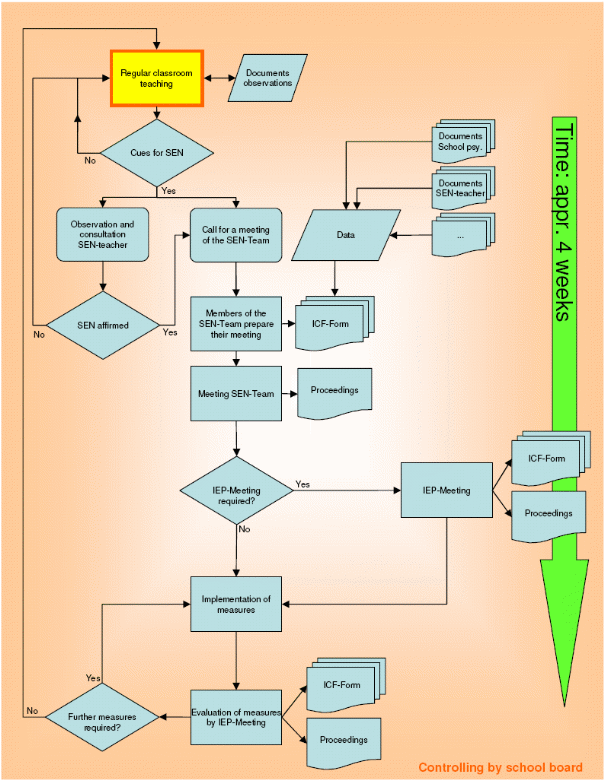APPENDIX 1 ROLE ALIGNMENT WITH THE UWA ACADEMY FELLOWSHIP
3 APPENDIX 1 DEVELOPING A SAFER3 APPENDIX 1 SAFER CARING PLAN
3 APPENDIX 1 SAFER CARING POLICY
APPENDIX 1 SAFE USE OF BED RAILS
APPENDIX 19 STANDARD BOARD OF EXAMINERS AGENDA
APPENDIX E GUIDELINES FOR MANAGERS DEALING WITH ALCOHOL
Appendix 1: Role Alignment with the UWA Academy Fellowship Scheme (AFS)
Areas of Activity of The UK Professional Standards Framework (Advance HE 2011)
|
A1 |
Design and plan learning activities and/or course of study |
|
A2 |
Teach and/or support learning |
|
A3 |
Assess and give feedback to learners |
|
A4 |
Develop effective learning environments and approaches to student support and guidance |
|
A5 |
Engage in continuing professional development in subjects/disciplines and their pedagogy, incorporating research, scholarship and the evaluation of professional practices |
Unit Coordinator
|
Definition |
||||||||||
|
A person responsible for coordinating a unit in a course is responsible for the student learning process including, conveying to students clear advice about the aims and the learning outcomes of the unit, the assessment requirements, the relationship between the assessment requirements and the learning outcomes, the relative weighting of assessment components, the application of agreed assessment criteria and standards and the provision of feedback. The coordinator is responsible for reviewing, moderating and recording as appropriate the marks and feedback provided to students to ensure consistency in academic achievement standards.
|
||||||||||
|
Required Qualification in accordance with TEQSA Higher Education Standards |
||||||||||
|
Section 3.2.3 of the Higher Education Standards Framework sets out the requirements for the availability, skills and knowledge of teaching staff, as follows: Staff with responsibilities for academic oversight and those with teaching and supervisory roles in courses or units of study are equipped for their roles, including having: a. knowledge of contemporary developments in the discipline or field, which is informed by continuing scholarship or research or advances in practice b. skills in contemporary teaching, learning and assessment principles relevant to the discipline, their role, modes of delivery and the needs of particular student cohorts, and c. a qualification in a relevant discipline at least one level higher than is awarded for the course of study, or equivalent relevant academic or professional or practice-based experience and expertise, except for staff supervising doctoral degrees having a doctoral degree or equivalent research experience
|
||||||||||
|
Unit Design (A1) – see policy links at the end of page 2 |
||||||||||
|
Comply with University policies and guidelines related to teaching. |
||||||||||
|
Set and revise unit learning outcomes and assessment in alignment with University Policy on Assessment (Section 3.2). |
||||||||||
|
Provide oversight of unit outcomes and curriculum change proposals in accordance with University Policy on Changes to Units. |
||||||||||
|
Respond to feedback about curriculum issues affecting the unit in accordance with University Policy on Changes to Units. |
||||||||||
|
Select teaching modes to provide a learning experience that is student- centered, appropriate and effective in alignment with University Policy on Selecting Teaching Modes (Sections 3.2, 5). |
||||||||||
|
Review units and teaching modes at least three years after introduction in alignment with University Policy on Selecting Teaching Modes (Section 5). |
||||||||||
|
Minimise duplication of unit content in accordance with University Policy on Duplication of Unit Content. |
||||||||||
|
Communicate with course/major coordinator and other unit coordinators to ensure unit scaffolding and appropriate skill/knowledge development. |
||||||||||
|
Complete LMS unit outline and undertake CAIDi annual change processes. |
||||||||||
|
Where relevant, prepare a unit guide book in accordance with school templates, and make available to the student. |
|
Support Learning and Teaching (A2) |
|
Liaise with Academic Services on teaching activities and timetabling. |
|
Abide by General Principles for SURF data in accordance with University Policy on Student Experience of Learning and Teaching (Section 2). |
|
Oversee the provision of marks to students in a timely manner and follow the schedule for exam boards. |
|
Attend and contribute to major/course review as appropriate. |
|
Attend and contribute to any discipline/level meeting and other teaching meetings/committees as appropriate. |
|
Supervise teaching staff. |
|
Ensure that support is available to students seeking individual assistance with their studies. |
|
Develop/oversee unit teaching activities in and out of classroom (e.g. labwork, fieldwork, visits) that comply with OHS and relevant University Policy. |
|
Organise, support and coordinate teaching input of all staff involved in the unit to ensure the unit is coherent, and the material is presented logically and successively. |
|
Oversee the maintenance of the LMS site for the unit. |
|
Ensure that all students involved in their unit have access to: the text(s) and all relevant unit readings any additional material such professional standards which students would be expected to read all handouts and notes access to LMS. |
|
Assessment (A3) |
|
Convey to students clear advice about the aims and desired learning outcomes of the unit in alignment with University Policy on Assessment (Section 3.2). |
|
Oversee, review, moderate, and ensure marks and feedback provided to students to assure consistency in academic achievement in alignment with University Policy on Assessment (Section 3.2). |
|
Ensure assessment tasks effectively assess the desired learning outcomes of the unit. |
|
Attend first ten minutes of the final examination of the unit if centrally administered. |
|
Be prepared to explain the grade awarded for a piece of work in terms of the learning outcomes and marking criteria set for the unit in alignment with University Policy on Assessment (Section 9.3). |
|
Be prepared to arrange for students to view their marked examination scripts on request, and to discuss them with an appropriate staff member in alignment with University Policy on Assessment (Section 9.3). |
|
Ensure that markers are appropriately briefed. |
|
Student Engagement and Support (A4) |
|
Provide advice and support to Student Advising Office staff for academic issues (Special Consideration, Review and Appeal of Academic Decisions) in accordance with University Policy on Review and Appeal of Academic Decisions Relating to Students (schedule A) and University Policy on Assessment: Special Consideration. |
|
Follow requirements for procedure, recording and handling of alleged breaches of academic conduct in alignment with University Policy on Academic Conduct. |
|
In consultation with the Student Advising Office, raise concerns on any student identified as being at risk of not making satisfactory progress at the unit level. |
|
School Engagement (A4) |
|
Support the implementation of the University, the School, and the School’s plan in relation to learning and teaching. |
|
Engage in Continuing Professional Development (A5) |
|
Manage unit quality and continuous improvement processes. |
|
Comply with professional accreditation where applicable. |
|
Take opportunities to enhance understanding of assessment processes/pedagogical approaches by attending relevant Professional Development (PD) courses (e.g. PD courses run by the Educational Enhancement Unit, UWA). |
|
Leadership and/or management of specific aspects of learning and teaching |
|
Ensure that all staff involved in their unit have access to: the text(s) any additional material such as journal articles or professional standards which students would be expected to read all handouts and notes tutorial and/or workshop questions and solutions access to LMS. |
References: Curtin University 2008a, Unit Coordinator Role Statement, Curtin University; Curtin University 2008b, Course/Major Coordinator Role Statement, Curtin University; Advance HE 2011, The UK Professional Standards Framework for Teaching and Supporting Learning in Higher Education, Advance HE, Guild HE, Universities UK.
Policy links: See Policy Library
Approved by Academic Council on 4 December 2019 – R62/19
APPENDIX H SURROGATE CONSENT PROCESS ADDENDUM THE
LOCAL ENTERPRISE OFFICE CAVAN MENTORING PANEL APPENDIX
(APPENDIX) INSTRUCTIONS FOR FOREIGN EXCHANGE SETTLEMENTS OF ACCUMULATED NT
Tags: academy fellowship, appendix, fellowship, academy, alignment
- DUMBSTRUCK BY ANNIE DILLARD A COUPLE OF SUMMERS AGO
- BANKS NOT HELPING MANUFACTURING INDUSTRIES –OMANUKWUE CHIEF BEN OMANUKWUE
- EARTHQUAKE ENGINEERING RESEARCH INSTITUTE OREGON STATE UNIVERSITY
- VPRAŠANJA PRI PREDMETU MRT KAKOVOST 1 DEFINICIJE KAKOVOSTI (KAKŠEN
- מדריך לאנשי מקצוע להזנת התינוק והפעוט 2009 וועדת תזונה
- THE NH STATE COUNCIL ON THE ARTS’ ARTS IN
- ZAHTEVA ZA IZDELAVO ENERGETSKE IZKAZNICE OBRAZEC »ZAHTEVA ZA IZDELAVO
- MONITORING OF HEARING AND LANGUAGE IN PRIMARY HEALTH CARE
- ILLICIT USE OF PRESCRIPTION ADHD MEDICATIONS ON A COLLEGE
- 2 ili Odeklinacija – Imenice na –ER Imenice
- FORMULARIO DE ADHESIÓN ORIGINAL ( ) RECTIFICATIVA ( )
- SEMMELWEIS EGYETEM KÖZBESZERZÉSI DOKUMENTUMOK PHILIPS INGENUITY64 TÍPUSÚ CT BERENDEZÉS
- GUÍA PRÁCTICA DE CONTABILIDAD I PROF JUNIOR HERNÁNDEZ BALANCE
- HARLEKÝN ZARIADENIE SOCIÁLNYCH SLUŽIEB 9112015 1030 IČO31825796 95501 TOPOLCANY
- SARI DEWALD BACHELOR OF PHYSIOTHERAPY MANUAL LYMPH THERAPIST MASTER
- a3-12-Transferencia-Arbiser
- URGENT ACTION SENTENCED TO YEARS IN PRISON FOR HER
- EL H CONGRESO DEL ESTADO EN SESION DE HOY
- 3PIELIKUMS ATKLĀTA KONKURSA NR R1S 2021107IEP NOLIKUMAM TEHNISKĀ SPECIFIKĀCIJA
- PUBLISHED IN THE CONNECTOR SPECIFIER GOLD FLASH CONTACTS
- LECTURE 3 RATIONAL CHOICE THEORIES (II) ECONOMIC THEORIES OF
- LESSON PLAN FUNGAL LIFE CYCLES TIME FRAME 50 MINUTES
- MANILLA COMMUNITY PRESCHOOL INC ANIMALS IN THE ENVIRONMENT POLICY
- ENDELIG VERSION AUGUST 2010 LÆSEPLAN MASTER I REHABILITERING MR
- HASAN RIAZ COMSATS INSTITUTE OF INFORMATION TECHNOLOGY COMSATS ROAD
- UNIDAD 2 EL AERÓBIC COMO MEDIO DE EXPRESIÓN BREVE
- INSTRUKCJA ZWROTU OPŁAT REKRUTACYJNYCH ZWROT OPŁAT REKRUTACYJNYCH 1 WNIOSKOWAĆ
- S OCIEDAD ARGENTINA DE GINECOLOGIA INFANTO JUVENIL PREMIO
- B MARKETING B LOS NUEVOS CÓDIGOS SE INSTALAN EN
- TYAN TIDE BUS MASTER DRIVER VERSION 210 FOR MICROSOFT
 APCEI2 PÁGINA 16 OMPI APCEI2 ORIGINAL INGLÉS FECHA 30
APCEI2 PÁGINA 16 OMPI APCEI2 ORIGINAL INGLÉS FECHA 30WYKAZ OSÓB PRAWNYCH I FIZYCZNYCH ORAZ JEDNOSTEK ORGANIZACYJNYCH NIEPOSIADAJĄCYCH
 ZGŁOSZENIE KRAJOWEJ OFERTY PRACY OFERTA UMOŻLIWIAJĄCA IDENTYFIKACJĘ PRACODAWCYOFERTA UNIEMOŻLIWIAJĄCA
ZGŁOSZENIE KRAJOWEJ OFERTY PRACY OFERTA UMOŻLIWIAJĄCA IDENTYFIKACJĘ PRACODAWCYOFERTA UNIEMOŻLIWIAJĄCAPRIPREMA PACIJENTA PRIJE DOLASKA U LABORATORIJU DAN PRIJE VAĐENJA
TEST EGZAMINACYJNY DLA PRACOWNIKÓW NAUKOWYCH I NAUKOWO – DYDAKTYCZNYCH
OSA ÚSEK VEŘEJNÉHO PROVOZOVÁNÍ VÁCLAV KOUBEK TŘÍDA ČS ARMÁDY
 REGISTRO DE REUNIÓN CURSO 201 201 FECHA LUGAR
REGISTRO DE REUNIÓN CURSO 201 201 FECHA LUGARNONOBSERVATION RINEX COMPRESSION JURAJ BEZRUČKA1 ABSTRACT RINEX FORMAT IS
 ESKOM HOLDINGS SOC LTD CONTRACT NO CONSULTATION WITH
ESKOM HOLDINGS SOC LTD CONTRACT NO CONSULTATION WITH MARKET CODE SCHEDULE 11 CODE SUBSIDIARY DOCUMENT NO 0103
MARKET CODE SCHEDULE 11 CODE SUBSIDIARY DOCUMENT NO 0103UN MOTOR REFINADO EN EL SEGMENTO DEPORTIVO PREMIUM NUEVO
ROLE OF THE VOLUNTEER BREASTFEEDING CHAMPION CONTEXT VOLUNTEER BREASTFEEDING
OSNOVNA ŠKOLA XX ADRESA ŠKOLE EVB 0318 MJESTO
MODELO DE TERMO DE ACORDO PARA NÃO PAGAMENTO DE
 INSTITUCION EDUCATIVA TECNICA SOLEDAD MEDINA CHAPARRAL TOLIMA NIT 8907068195
INSTITUCION EDUCATIVA TECNICA SOLEDAD MEDINA CHAPARRAL TOLIMA NIT 8907068195 NA OSNOVI 6 7 IN 30 ČLENA STATUTA SLOVENSKEGA
NA OSNOVI 6 7 IN 30 ČLENA STATUTA SLOVENSKEGAZÁJEZDOVÁ ČINNOST ZÁJEZD JE ORGANIZOVANÁ SKUPINA OSOB ÚČASTNÍCÍ
 INNOVATIVE ASSESSMENT TOOLS AND METHODS – THE ICFBASED MODEL
INNOVATIVE ASSESSMENT TOOLS AND METHODS – THE ICFBASED MODEL INSTRUCCIÓN GENERAL NÚMERO 032012 A FISCALES DISTRITALES FISCALES DE
INSTRUCCIÓN GENERAL NÚMERO 032012 A FISCALES DISTRITALES FISCALES DE GUIDELINES FOR SUBMITTING ONLINE APPLICATIONS – RESEARCH POSTS 1
GUIDELINES FOR SUBMITTING ONLINE APPLICATIONS – RESEARCH POSTS 1